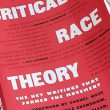By Manus Lenihan
A comet is about to wipe out all life on Earth – this was the basic idea of not one but two Hollywood movies released in 1998. Deep Impact was considered more ‘realistic’ than Armageddon, but both were fantasies of the 1990s, back when more people trusted the political establishment and academics had proclaimed the ‘end of history.’ In both we see a united human race, guided by wise and benevolent US politicians, taking the necessary action to save itself from destruction.
At the end of 2021 many of us sat down to watch Don’t Look Up, a movie with the same basic premise. But this comedy is a lot more true to life. Don’t Look Up understands that the battle is not ‘human vs rock.’ As a species we have the means to destroy the asteroid. But our ruling class is too rotten and useless to do so. Armageddon was about a big rock, but Don’t Look Up is about politics, the media, science, conspiracy theories, the pandemic and climate change.
Below, I will talk about the plot while avoiding spoilers. The story follows Kate (Jennifer Lawrence), an American student who discovers the asteroid, and Mindy (Leonardo DiCaprio), her professor. Still reeling from the discovery that the world is about to end, they are further knocked back by the fact that the media and the US president (Meryl Streep) don’t care. The story about the planet-killing asteroid has to elbow its way into the news cycle between a celebrity breakup and a porn star cowboy Supreme Court nominee.
After being ignored, Kate and Mindy face denial. The science is questioned, the waters are muddied, Kate and Mindy are denounced as ‘Marxists’ by the far right. The viewer will think of debates around Covid and climate change.
After denial comes co-opting. Kate pays a heavy price because she is not afraid to denounce the machinations of tech billionaires and politicians – the label ‘Marxist’ might not be too far off the mark. But Mindy is seduced by fame. He allows his own credibility as a scientist to be used as a fig-leaf for a reckless and greedy project. In a phrase we’ve heard from a thousand political sell-outs, he insists that it’s better to be ‘in the room’ where the decisions are made. Even if he has no real say and the decisions are the wrong ones.
In one scene the president’s sidekick (Jonah Hill) explains to a Trump-style rally that the world is divided into ‘you, the working class,’ ‘us, the cool rich,’ and, pulling a disgusted face, ‘them.’ ‘Them’ refers to the qualified ‘smart’ people.
The film is, of course, ridiculing this bizarre, patronising, elitist world view. But at other points the film seems to hint at a similar message. Repeatedly we see the characters pleading earnestly that we listen to scientists, to the ‘qualified people.’ Don’t Look Up has been criticised on these points for allegedly portraying the people as gullible, listening to snake oil salesmen rather than ‘qualified people.’ From the Iraq War to the financial crisis and the Opioid epidemic, there is a real basis to people’s distrust for ‘qualified people.’
But elsewhere the film cuts across the danger of sounding like an affluent Covid scold. When Mindy and two Nobel Prize winners put their names to a reckless and greedy plan, we are reminded that scientists, like anyone else, can be recruited into the service of causes opposed to science and humanity.
Anyway, the overwhelming weight of the film’s rage and mockery falls on the ruling class – big business, politicians, the media. Mark Rylance puts in a chilling performance as Peter Isherwell, a character who embodies big tech capitalists like Musk, Thiel and Bezos. He is outraged when he is referred to as a ‘businessman,’ because in his eyes, he’s nothing less than a tech messiah.
Director Adam McKay’s early hits like Anchorman (2004) and Step Brothers (2008) were silly, fun movies with more laugh-out-loud moments. The closing credits of The Other Guys (2010), which gave a punchy run-down of the history of financial scandals, hinted at the director setting his sights on politics. Then came The Big Short (2015), a comedy explaining the roots of the financial crisis. Don’t Look Up builds on this with a more epic and out-there satire.
It is a cynical and pessimistic film – that is, it is pessimistic about the ability of our broken and rotten ruling class to save us, and cynical about our sociopathic tech billionaires and their saviour complexes. But it is not cynical about humanity in general. The later scenes, with their touching and sensitive human moments, pay tribute to those who take action even when things are bleak. Compared to celebrated satirical movies like Dr Strangelove or Network, Don’t Look Up is surprisingly optimistic.












